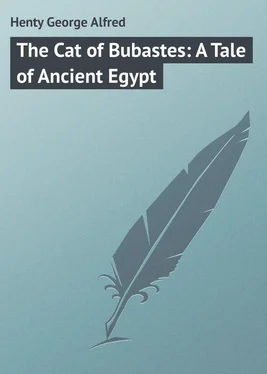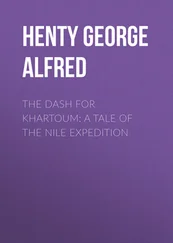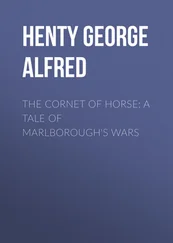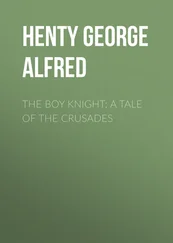George Henty - The Cat of Bubastes - A Tale of Ancient Egypt
Здесь есть возможность читать онлайн «George Henty - The Cat of Bubastes - A Tale of Ancient Egypt» — ознакомительный отрывок электронной книги совершенно бесплатно, а после прочтения отрывка купить полную версию. В некоторых случаях можно слушать аудио, скачать через торрент в формате fb2 и присутствует краткое содержание. Жанр: foreign_prose, на английском языке. Описание произведения, (предисловие) а так же отзывы посетителей доступны на портале библиотеки ЛибКат.
- Название:The Cat of Bubastes: A Tale of Ancient Egypt
- Автор:
- Жанр:
- Год:неизвестен
- ISBN:нет данных
- Рейтинг книги:5 / 5. Голосов: 1
-
Избранное:Добавить в избранное
- Отзывы:
-
Ваша оценка:
- 100
- 1
- 2
- 3
- 4
- 5
The Cat of Bubastes: A Tale of Ancient Egypt: краткое содержание, описание и аннотация
Предлагаем к чтению аннотацию, описание, краткое содержание или предисловие (зависит от того, что написал сам автор книги «The Cat of Bubastes: A Tale of Ancient Egypt»). Если вы не нашли необходимую информацию о книге — напишите в комментариях, мы постараемся отыскать её.
The Cat of Bubastes: A Tale of Ancient Egypt — читать онлайн ознакомительный отрывок
Ниже представлен текст книги, разбитый по страницам. Система сохранения места последней прочитанной страницы, позволяет с удобством читать онлайн бесплатно книгу «The Cat of Bubastes: A Tale of Ancient Egypt», без необходимости каждый раз заново искать на чём Вы остановились. Поставьте закладку, и сможете в любой момент перейти на страницу, на которой закончили чтение.
Интервал:
Закладка:
Already at his introduction to the priesthood, Ameres had mastered all there was to learn in geometry and astronomy. He was a skillful architect, and was deeply versed in the history of the nation. He had already been employed as supervisor in the construction of canals and irrigation works on the property belonging to the temple, and in all these respects his father had every reason to be proud of the success he had attained and the estimation in which he was held by his fellows. It was only the latitude which he allowed himself in consideration of religious questions which alarmed and distressed his father.
The Egyptians were the most conservative of peoples. For thousands of years no change whatever took place in their constitution, their manners, customs, and habits. It was the fixed belief of every Egyptian that in all respects their country was superior to any other, and that their laws and customs had approached perfection. All, from the highest to the lowest, were equally bound by these. The king himself was no more independent than the peasant; his hour of rising, the manner in which the day should be employed, the very quantity and quality of food he should eat, were all rigidly dictated by custom. He was surrounded from his youth by young men of his own age – sons of priests, chosen for their virtue and piety.
Thus he was freed from the influence of evil advisers, and even had he so wished it, had neither means nor power of oppressing his subjects, whose rights and privileges were as strictly defined as his own. In a country then, where every man followed the profession of his father, and where from time immemorial everything had proceeded on precisely the same lines, the fact that Ameres, the son of the high priest of Osiris, and himself destined to succeed to that dignity, should entertain opinions differing even in the slightest from those held by the leaders of the priesthood, was sufficient to cause him to be regarded with marked disfavor among them; it was indeed only because his piety and benevolence were as remarkable as his learning and knowledge of science that he was enabled at his father’s death to succeed to his office without opposition.
Indeed, even at that time the priests of higher grade would have opposed his election; but Ameres was as popular with the lower classes of the priesthood as with the people at large, and their suffrages would have swamped those of his opponents. The multitude had, indeed, never heard so much as a whisper against the orthodoxy of the high priest of Osiris. They saw him ever foremost in the sacrifices and processions; they knew that he was indefatigable in his services in the temple, and that all his spare time was devoted to works of benevolence and general utility; and as they bent devoutly as he passed through the streets they little dreamed that the high priest of Osiris was regarded by his chief brethren as a dangerous innovator.
And yet it was on one subject only that he differed widely from his order. Versed as he was in the innermost mysteries, he had learned the true meaning of the religion of which he was one of the chief ministers. He was aware that Osiris and Isis, the six other great gods, and the innumerable divinities whom the Egyptians worshiped under the guise of deities with the heads of animals, were in themselves no gods at all, but mere attributes of the power, the wisdom, the goodness, the anger of the one great God – a God so mighty that his name was unknown, and that it was only when each of his attributes was given an individuality and worshiped as a god that it could be understood by the finite sense of man.
All this was known to Ameres and the few who, like him, had been admitted to the inmost mysteries of the Egyptian religion. The rest of the population in Egypt worshiped in truth and in faith the animal-headed gods and the animals sacred to them; and yet as to these animals there was no consensus of opinion. In one nome or division of the kingdom the crocodile was sacred; in another he was regarded with dislike, and the ichneumon, that was supposed to be his destroyer, was deified. In one the goat was worshiped, and in another eaten for food; and so it was throughout the whole of the list of sacred animals, which were regarded with reverence or indifference according to the gods who were looked upon as the special tutelary deities of the nome.
It was the opinion of Ameres that the knowledge, confined only to the initiated, should be more widely disseminated, and, without wishing to extend it at present to the ignorant masses of the peasantry and laborers, he thought that all the educated and intelligent classes of Egypt should be admitted to an understanding of the real nature of the gods they worshiped and the inner truths of their religion. He was willing to admit that the process must be gradual, and that it would be necessary to enlarge gradually the circle of the initiated. His proposals were nevertheless received with dismay and horror by his colleagues. They asserted that to allow others besides the higher priesthood to become aware of the deep mysteries of their religion would be attended with terrible consequences.
In the first place, it would shake entirely the respect and reverence in which the priesthood were held, and would annihilate their influence. The temples would be deserted, and, losing the faith which they now so steadfastly held in the gods, people would soon cease to have any religion at all. “There are no people,” they urged, “on the face of the earth so moral, so contented, so happy, and so easily ruled as the Egyptians; but what would they be did you destroy all their beliefs, and launch them upon a sea of doubt and speculation! No longer would they look up to those who have so long been their guides and teachers, and whom they regard as possessing a knowledge and wisdom infinitely beyond theirs. They would accuse us of having deceived them, and in their blind fury destroy alike the gods and their ministers. The idea of such a thing is horrible.”
Ameres was silenced, though not convinced. He felt, indeed, that there was much truth in the view they entertained of the matter, and that terrible consequences would almost certainly follow the discovery by the people that for thousands of years they had been led by the priests to worship as gods those who were no gods at all, and he saw that the evil which would arise from a general enlightenment of the people would outweigh any benefit that they could derive from the discovery. The system had, as his colleagues said, worked well; and the fact that the people worshiped as actual deities imaginary beings who were really but the representatives of the attributes of the infinite God, could not be said to have done them any actual harm. At any rate, he alone and unaided could do nothing. Only with the general consent of the higher priesthood could the circle of initiated be widened, and any movement on his part alone would simply bring upon himself disgrace and death. Therefore, after unburdening himself in a council composed only of the higher initiates, he held his peace and went on the quiet tenor of his way.
Enlightened as he was, he felt that he did no wrong to preside at the sacrifices and take part in the services of the gods. He was worshiping not the animal-headed idols, but the attributes which they personified. He felt pity for the ignorant multitude who laid their offerings upon the shrine; and yet he felt that it would shatter their happiness instead of adding to it were they to know that the deity they worshiped was a myth. He allowed his wife and daughter to join with the priestesses in the service at the temple, and in his heart acknowledged that there was much in the contention of those who argued that the spread of the knowledge of the inner mysteries would not conduce to the happiness of all who received it. Indeed he himself would have shrunk from disturbing the minds of his wife and daughter by informing them that all their pious ministrations in the temple were offered to non-existent gods; that the sacred animals they tended were in no way more sacred than others, save that in them were recognized some shadow of the attributes of the unknown God.
Читать дальшеИнтервал:
Закладка:
Похожие книги на «The Cat of Bubastes: A Tale of Ancient Egypt»
Представляем Вашему вниманию похожие книги на «The Cat of Bubastes: A Tale of Ancient Egypt» списком для выбора. Мы отобрали схожую по названию и смыслу литературу в надежде предоставить читателям больше вариантов отыскать новые, интересные, ещё непрочитанные произведения.
Обсуждение, отзывы о книге «The Cat of Bubastes: A Tale of Ancient Egypt» и просто собственные мнения читателей. Оставьте ваши комментарии, напишите, что Вы думаете о произведении, его смысле или главных героях. Укажите что конкретно понравилось, а что нет, и почему Вы так считаете.












